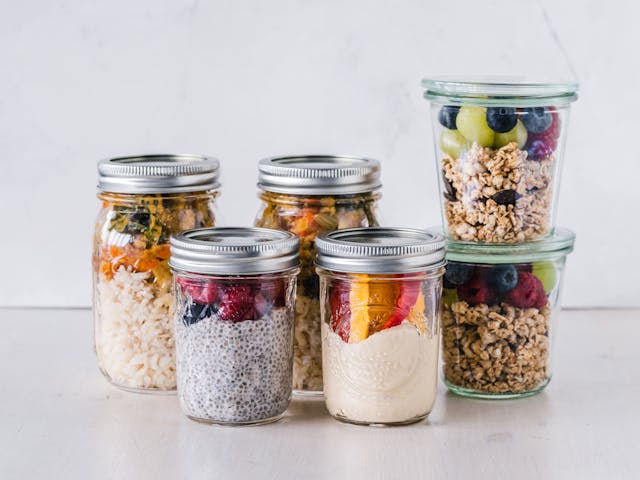
In my previous post, I defended buying pre-mixed foods, but I wanted to also present an argument against these, for the sake of completeness. The argument is that the food supply has largely become corrupted as companies cut corners, introduce harmful chemicals and pesticides, and otherwise rely on deceptive labeling to trick consumers, and this stacks for every level of the supply chain, such that relying on pre-mixed foods ultimately requires you to trust several layers of potential corruption, which could be pretty harmful altogether.
Take, for example, the blueberry powder I mentioned. One familiar brand sells a bag of organic blueberry powder, which could be an ingredient I use to create my own oatmeal pre-mix. However, the powder is manufactured in China, although the company selling it operates in the United States. Nothing is necessarily “bad” simply because it comes from China, but China is well-known for their lax inspection standards, lack of regulation, and overall deceptive practices, and since the USDA does not have the funding to inspect absolutely everything being imported, relying instead on foreign 3rd parties (“trust me, bro” guarantees), there’s reason to be suspicious whether organic blueberry powder from China is A) actually organic, and B) not laced with a host of toxic or otherwise disagreeable chemicals. And that got me thinking.
First of all, if I’m making my own oatmeal pre-mix, it may be as simple as finding a different company who manufacturers that ingredient in the United States. USDA Organic actually carries some decent weight here, and sellers are required to have easily accessed facilities for inspection, so although you can cut corners, doing so too boldly can get you in serious trouble. But then I thought to myself, “So what about the oatmeal pre-mix I’m buying? Where do they source their blueberry powder?”
Uhhhh…I have no idea. And that’s maybe a problem, isn’t it?
The more ingredients are in a food, the more trust you must have in each ingredient. But by the time all the chemical emulsifiers have been added and the strange oils mixed from cheap sources in multiple countries (which have their own potentially disparate quality standards), what exactly are you getting?
It’s entirely possible that you’re getting a fine, healthy product. But I’m a bit more cynical about human nature, and am more inclined to believe that at least somebody has cut corners in the chain. Even einkorn flour producers like the set the serving size to 1/3 cup instead of the standard 1/4 cup that most wheat flour is measured by, likely to boost the perceived fiber content. The truth is, einkorn just has less fiber than modern varieties of wheat, but that’s a key element of its physiology, and actually an argument for one of its benefits. Nonetheless, you can count on even some farmers being rat bastards and trying to throw people off by changing the serving size. This is a more benign example, but you can’t get away from this sort of thing. Plenty of flour companies say their flour is “stone ground”, but this label isn’t regulated, and aside from cottage industry and artisanal producers, I’m only aware of Bob’s Red Mill being legitimate when they claim their flour is stone ground. When oils say they are “expeller pressed”, they aren’t 100% expeller pressed, as after the first press, they are allowed to extract the remaining oil from the cake using hexane (if I understand it correctly). So…potentially still healthier than their non-expeller-pressed equivalents, but not exactly hexane free. And who knows? Maybe 1 part per million or whatever of hexane really isn’t dangerous to humans, but can you really trust the food companies when they say “trust me bro, it’s perfectly fine”. How many times have we heard that through history?
If I had to put forward some sort of rule, I’d say that it’s easier to identify the true source and provenance of individual ingredients than it is to identify the true source and provenance of combinations. You’d have to reach out to a company and actually get them to tell you where they sourced their ingredients to have any clue where those came from, but they are unlikely to tell you, either for contractual reasons or for trade secret reasons (i.e., so as not to be outbid by a larger retailer who wants to put them out of business). However, if a company sells an individual item, they are often required to state the country of production. (I wish I understood the laws around this more)
All of this to say…I might try to source my own oatmeal mix sooner than later. I still think the combined veggies are fine, but there’s just enough oddball ingredients in the oatmeal to make me want to create my own.